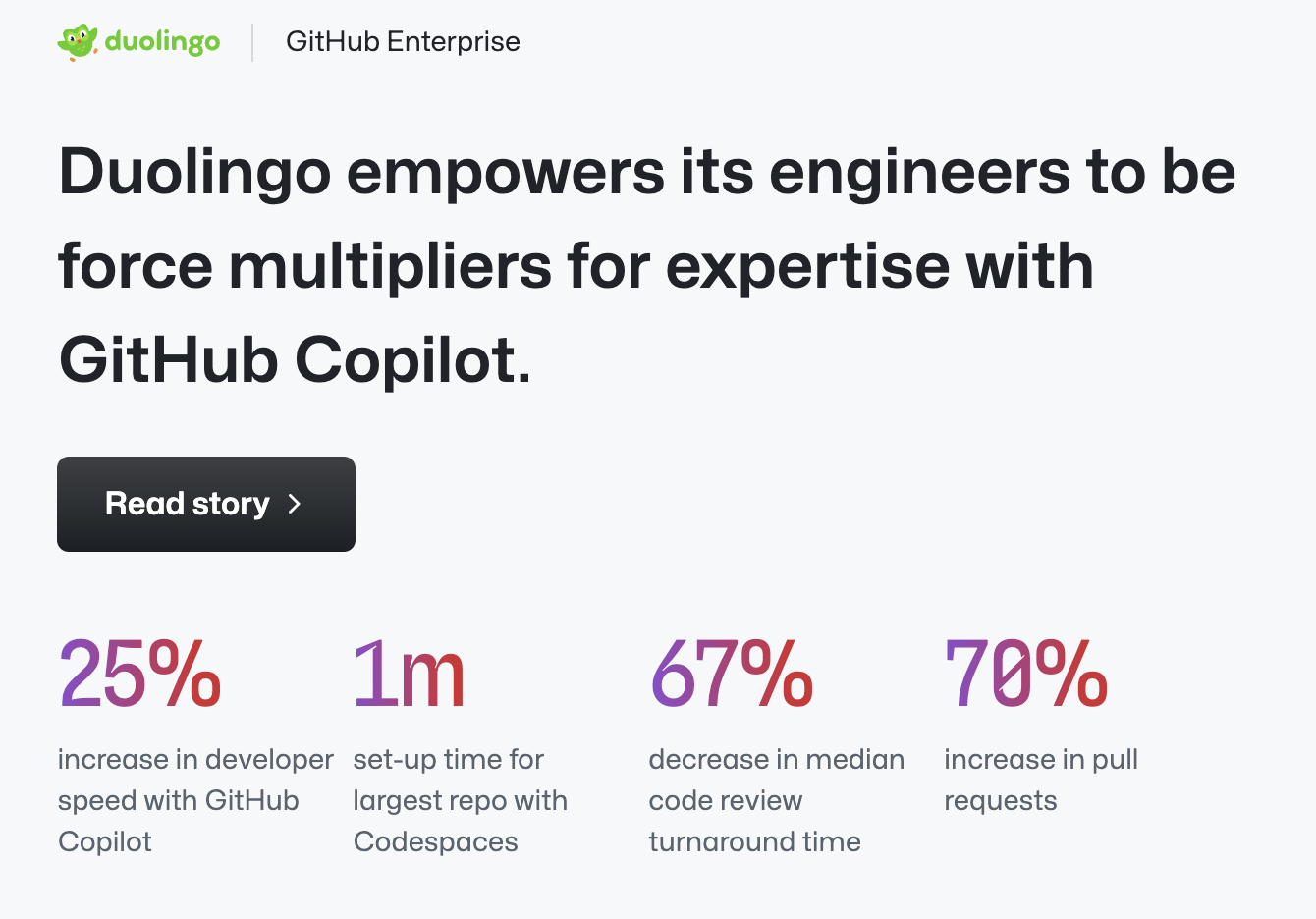How GitHub Codespaces Enhances Developer Productivity
 Animesh Pathak
Animesh Pathak
In this blog, we share how we improved the daily build-run-test-edit experience using CodeSpaces, our remote development environment. We will start with some initial challenges, the pain points we addressed with CodeSpaces, our architecture, and how adopting CodeSpaces improved the engineering team produc.
The Problem with Traditional Local Development
Whether you're using a Windows, Mac, or Linux operating system for development, the instructions to set up the project correctly are very different. This includes the installation of various dependencies, extensions, command-line tools, etc..
The issues that generally were faced are: -
Builds are larger and take longer time.
Several GB of artifacts need to be downloaded or built locally.
Sometimes, cloning a new project and setting it up from scratch would take hours remotely.
In addition to all of these keeping the local development up to date is a constant struggle. I would like to share one instance which happened while we introduced the roaster within the developer team “One of our engineers spent an entire afternoon setting up their local environment for a new microservices project, only to realize that the configurations were different from the ones used by the rest of the team.” This led to hours of troubleshooting.
Remote Development Using Codespaces
What is Codespaces?
GitHub Codespaces is a cloud-based development environment provided by GitHub. It allows developers to create, configure, and share development environments that run in the cloud, making it easier to develop and collaborate on code without having to set up a local development environment.
Another great thing about Codespaces is that it's equipped. You can open any GitHub repository you like (currently limited to non-organisation-owned repositories). Make and Commit the changes then raising a PR has never been simpler. Running Unix command lines? Installing some npm packages? Committing some changes? You can do it in the terminal easily. No installation is needed.
Codespaces Advantages
Here are some key features and benefits of GitHub Codespaces:
Instant Setup: Developers can quickly spin up a fully configured development environment in the cloud, eliminating the need to set up local environments and install dependencies manually.
Consistency: Codespaces ensures that all team members are working in a consistent environment, reducing the "it works on my machine" problem.
Customization: Developers can customize their Codespaces environments with dotfiles and configuration files, ensuring that their development setup meets their specific needs.
Integration with GitHub: Codespaces is tightly integrated with GitHub, allowing developers to create Codespaces directly from their repositories and access all GitHub features seamlessly.
Access Anywhere: Since Codespaces runs in the cloud, developers can access their development environments from any device with an internet connection, making it easy to work from anywhere.
Resource Management: Codespaces can be configured with different amounts of CPU, memory, and storage based on the needs of the project, providing flexibility and scalability.
Security: By running development environments in the cloud, Codespaces can help improve security by isolating development environments from local machines and networks.
Here's the architecture diagram of codespaces:
+------------------------------------------------------+
| GitHub |
| |
| +-----------------------------------------------+ |
| | GitHub Repositories (code storage) | |
| | Trigger GitHub Actions, Create Pull Requests | |
| | Link to Issues and Project Management | |
| +-----------------------------------------------+ |
| |
+-----------------------------|------------------------+
|
|
V
+-------------------------------------------------------+
| GitHub Codespaces Platform |
| |
| +-----------------------------------------------+ |
| | Codespaces API (manages creation and setup) | |
| +-----------------------------------------------+ |
| |
| +-----------------------------------------------+ |
| | Environment Config (.devcontainer.json) | |
| +-----------------------------------------------+ |
| |
| +-----------------------------------------------+ |
| | VS Code / IDE Integration (direct access to repo)| |
| +-----------------------------------------------+ |
| |
| +-----------------------------------------------+ |
| | Compute Resources (Cloud VMs: CPU, Memory) | |
| +-----------------------------------------------+ |
| |
+-----------------------------|-------------------------+
|
|
V
+--------------------------------------------------------+
| Developer's Local Environment |
| |
| +------------------------------------------------+ |
| | Web Browser / IDE (access Codespace remotely) | |
| +------------------------------------------------+ |
| |
| +-------------------------------------------------+ |
| | Codespaces Connection Agent (connects local env | |
| | to cloud-based Codespace) | |
| +-------------------------------------------------+ |
| |
+--------------------------------------------------------+
Your source code is already stored in GitHub repositories (which can be public or private). GitHub Codespaces Platform is the core of GitHub Codespaces, which includes several components:
Codespaces API: Facilitates the creation, management, and termination of Codespaces.
Environment Config: Uses
.devcontainer.jsonand other configuration files to set up the development environment.VS Code / IDE Integration: Allows integration with Visual Studio Code or other supported IDEs.
Compute Resources: Cloud VMs that provide the necessary CPU, memory, and storage for running the development environment.
Developer's Local Environment: The developer accesses the Codespace via a web browser or a locally installed IDE. The Codespaces Connection Agent handles the communication between the local environment and the cloud-based Codespace.
By combining GitHub’s robust version control system, collaboration tools, and CI/CD pipelines with the cloud-based power of Codespaces, developers can work in an environment that mirrors production settings and enhances team collaboration, all without worrying about the underlying infrastructure.
Customer Success Stories
Duolingo

Duolingo has enhanced its development efficiency with GitHub Codespaces. When developers faced issues running Docker on Apple M1 machines, Codespaces provided a 1-click environment setup, saving time on troubleshooting. "With Codespaces, setting up our largest repo takes just a minute, compared to hours or days before," says Chaidarun.
Initially hesitant, Burket now praises Codespaces for offering control and customization while simplifying team onboarding. "I thought I’d have to compromise by working remotely, but that hasn’t been the case."
By leveraging GitHub Copilot and Codespaces, Duolingo maximizes engineering time, enabling faster product development and new content creation. You can read here more about Duolingo using GitHub Enterprise.
GitHub Engineering Team
Codespaces transformed our dev environment by allowing them to treat it like infrastructure—easy to refresh while maintaining control. With features like Visual Studio Code extensions, settings sync, and dotfiles, a broken workbench is now a minor issue. Migrating to Codespaces solved their environment limitations, cutting provisioning time from 45 minutes to just 5 minutes. Further optimizations, including prebuilds, brought setup time down to just 10 seconds.
This shift has streamlined onboarding, sped up parallel workstreams, and allowed them to optimize the environment in ways that weren’t possible with local setups. They also upgraded every engineer’s machine specs with a single config change, boosting performance across the team.
Conclusion
GitHub Codespaces eliminates the hassles of local development setup by providing a ready-to-use, consistent, and cloud-based environment accessible from anywhere. It saves time, enhances collaboration, and allows developers to focus on coding, not configuration.
For teams looking to optimize their workflows, adopting Codespaces ensures a seamless and efficient development experience.
Subscribe to my newsletter
Read articles from Animesh Pathak directly inside your inbox. Subscribe to the newsletter, and don't miss out.
Written by

Animesh Pathak
Animesh Pathak
Animesh Pathak is a Developer Relations professional passionate about APIs, testing, and open-source development. As an advocate for Keploy, he actively engages with developer communities, creating content and fostering collaboration to improve testing workflows. Animesh has contributed to various projects and spoken at developer-focused events, sharing insights on API testing, automation, and the evolving DevOps landscape. He thrives on building meaningful connections, whether through technical content, community initiatives, or hands-on mentorship, always striving to make an impact in the developer ecosystem!